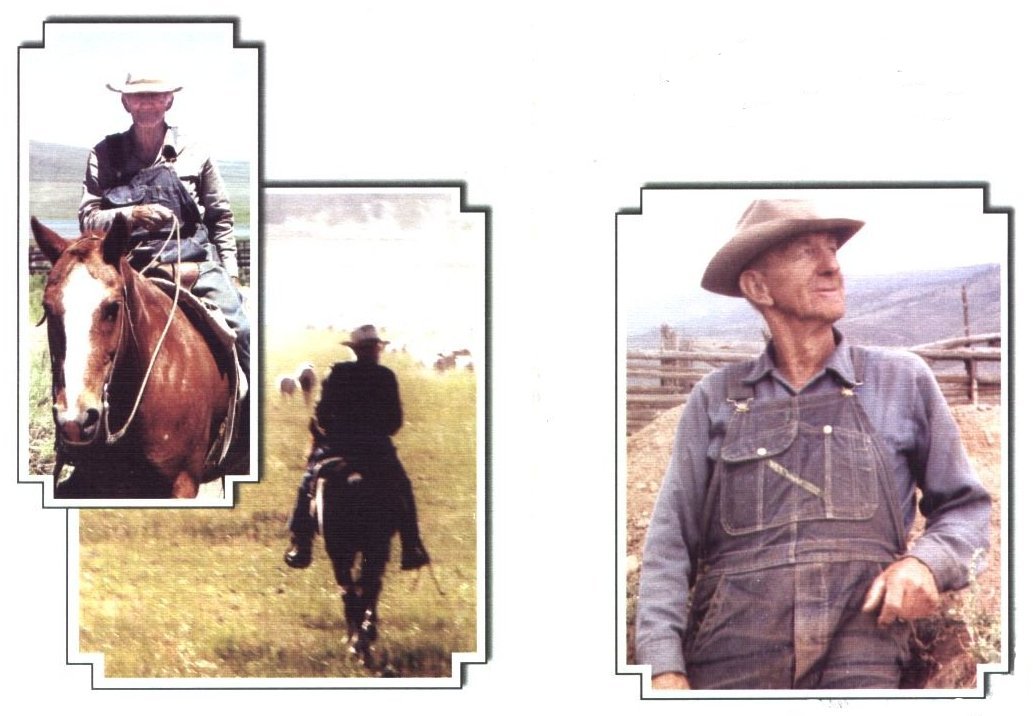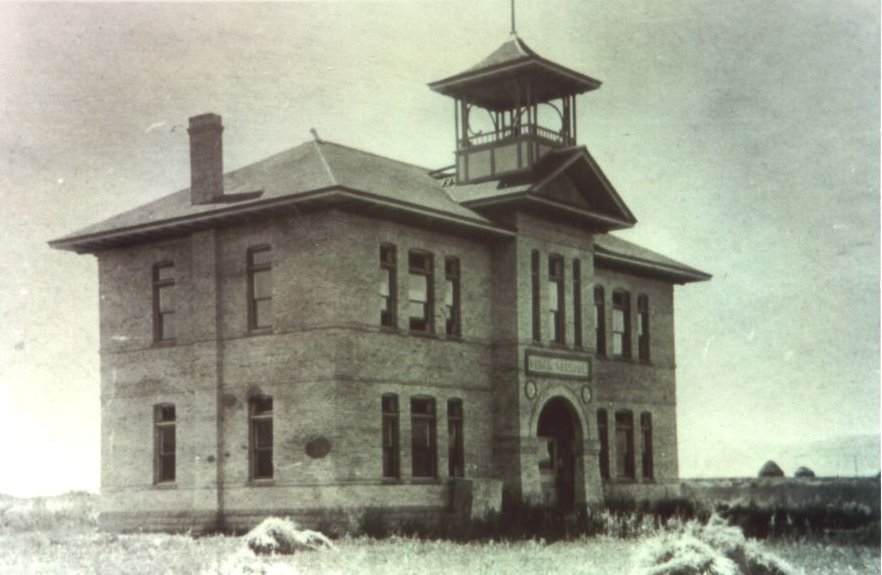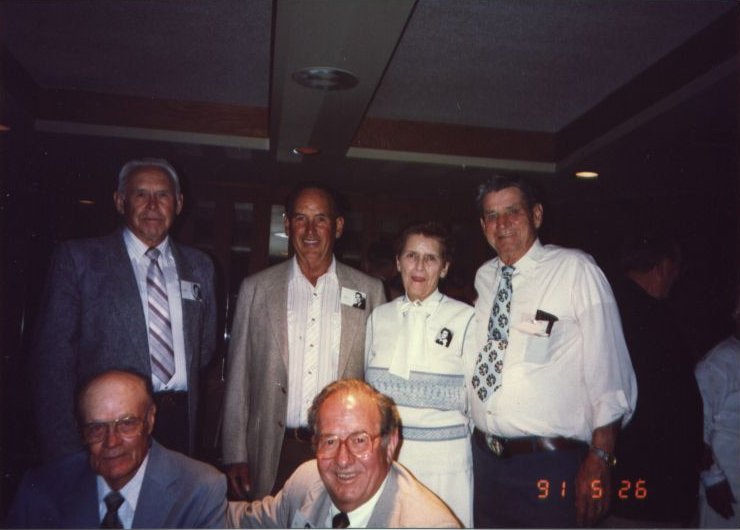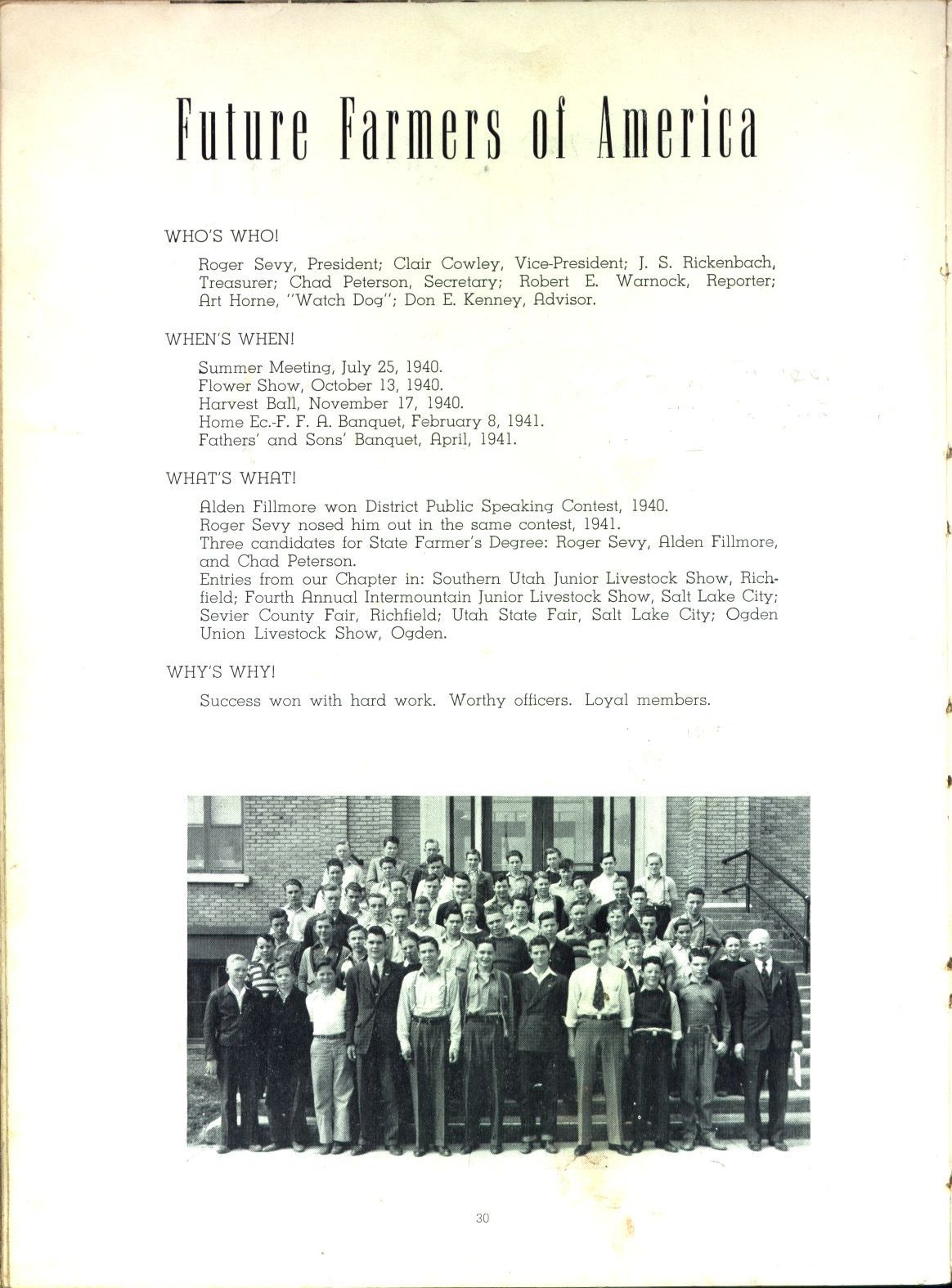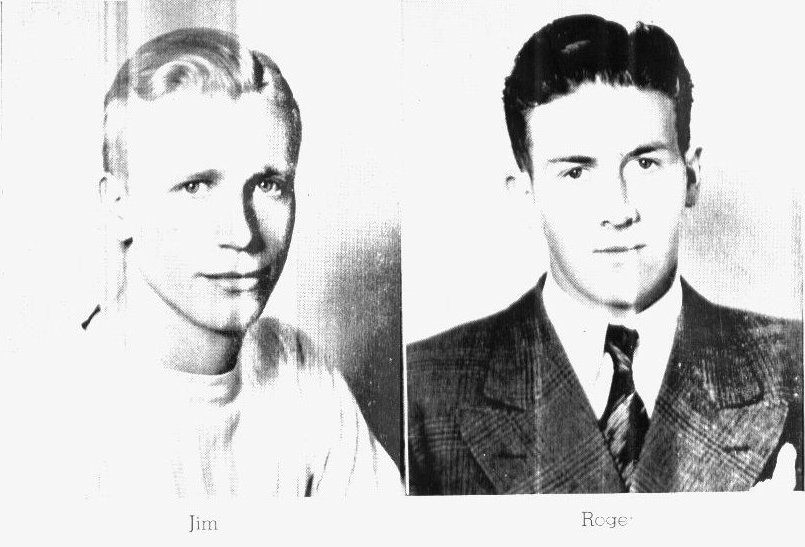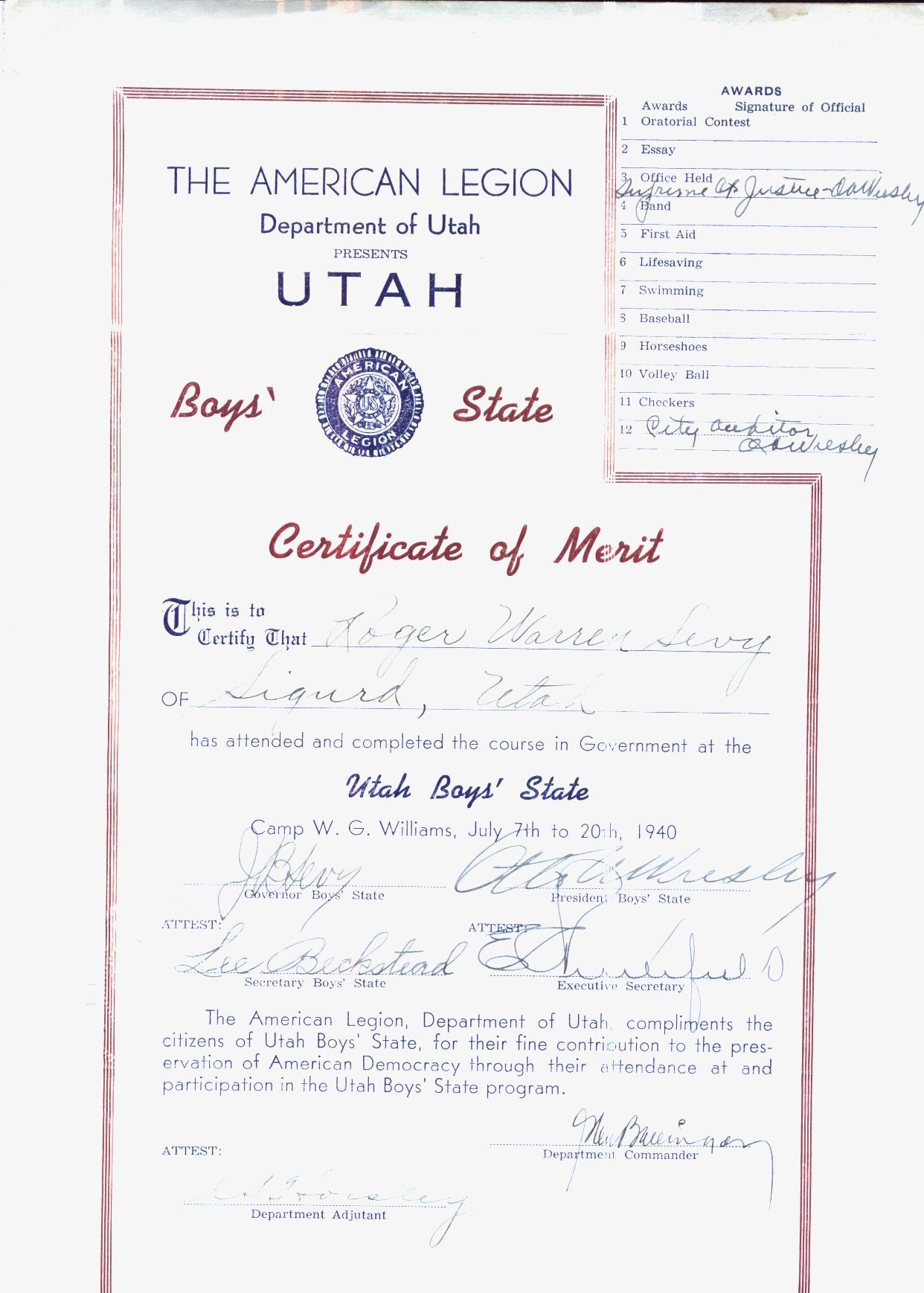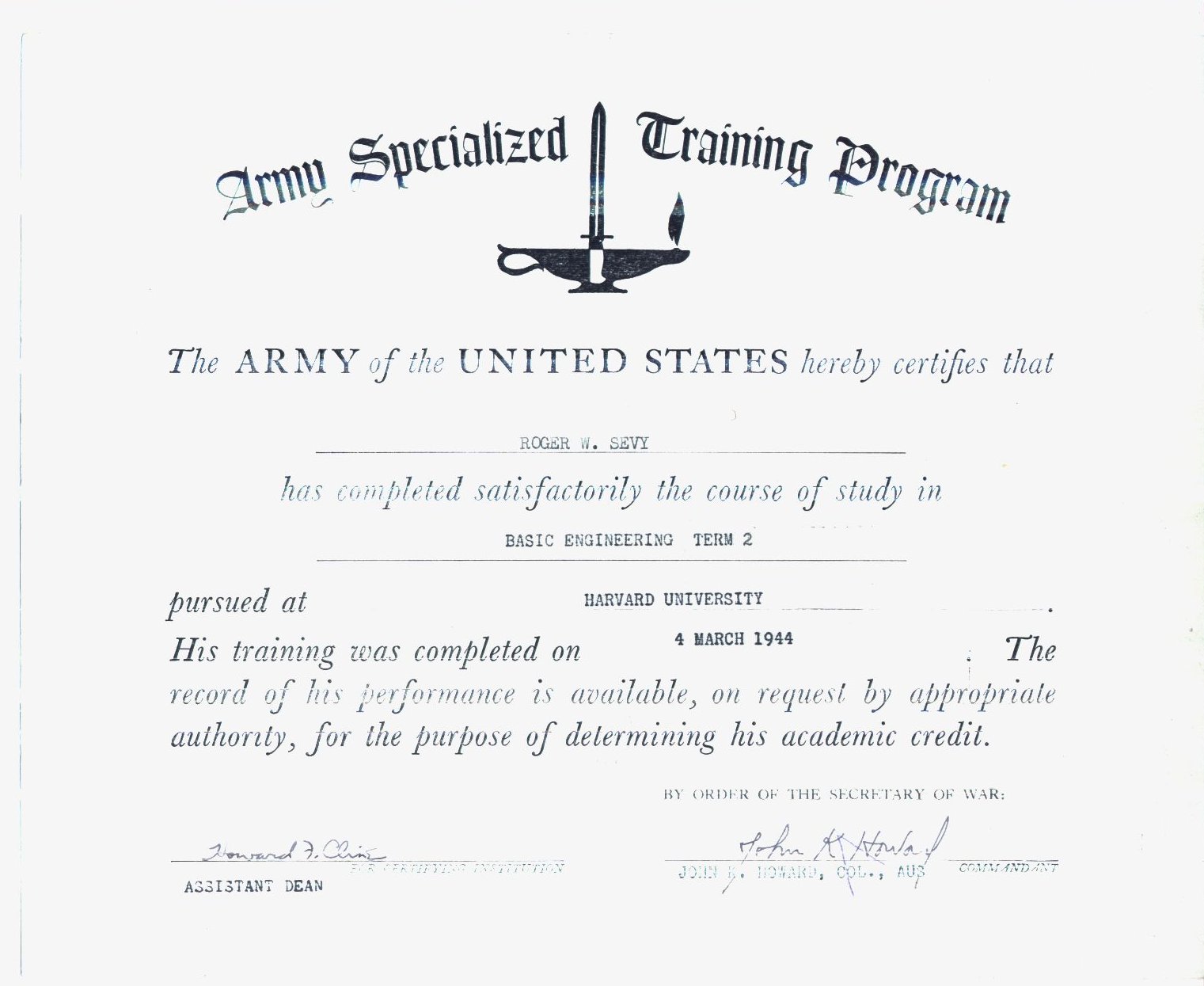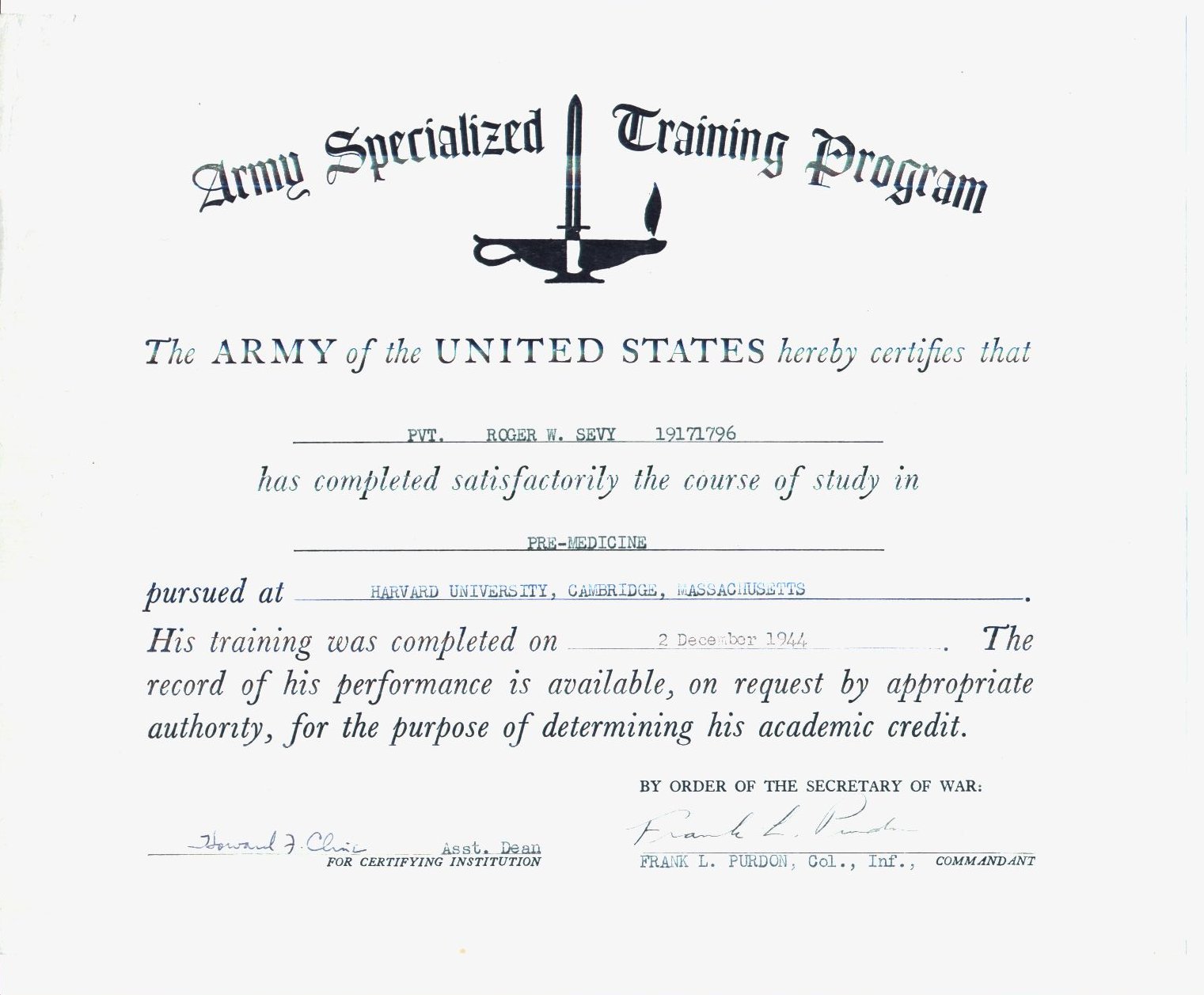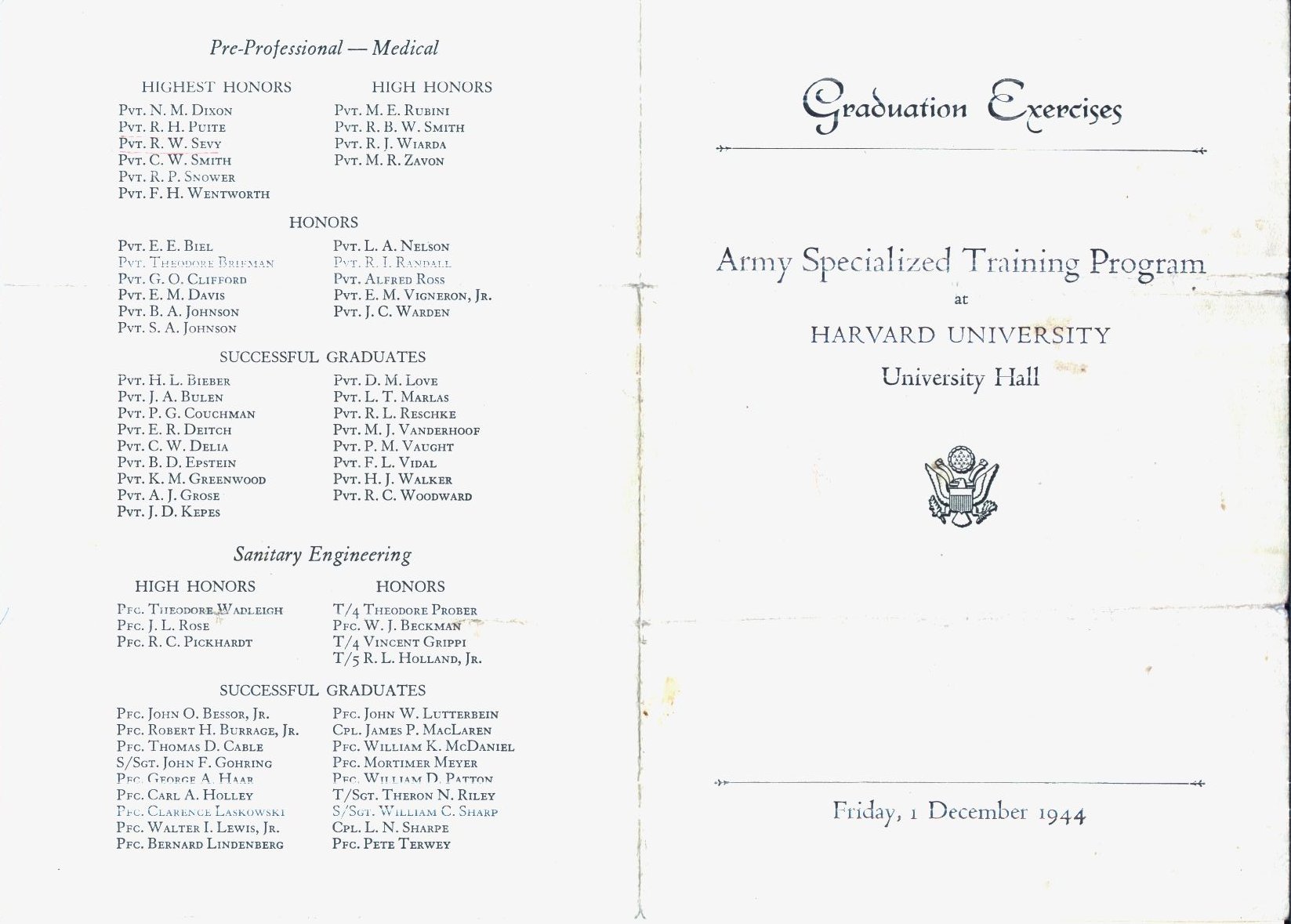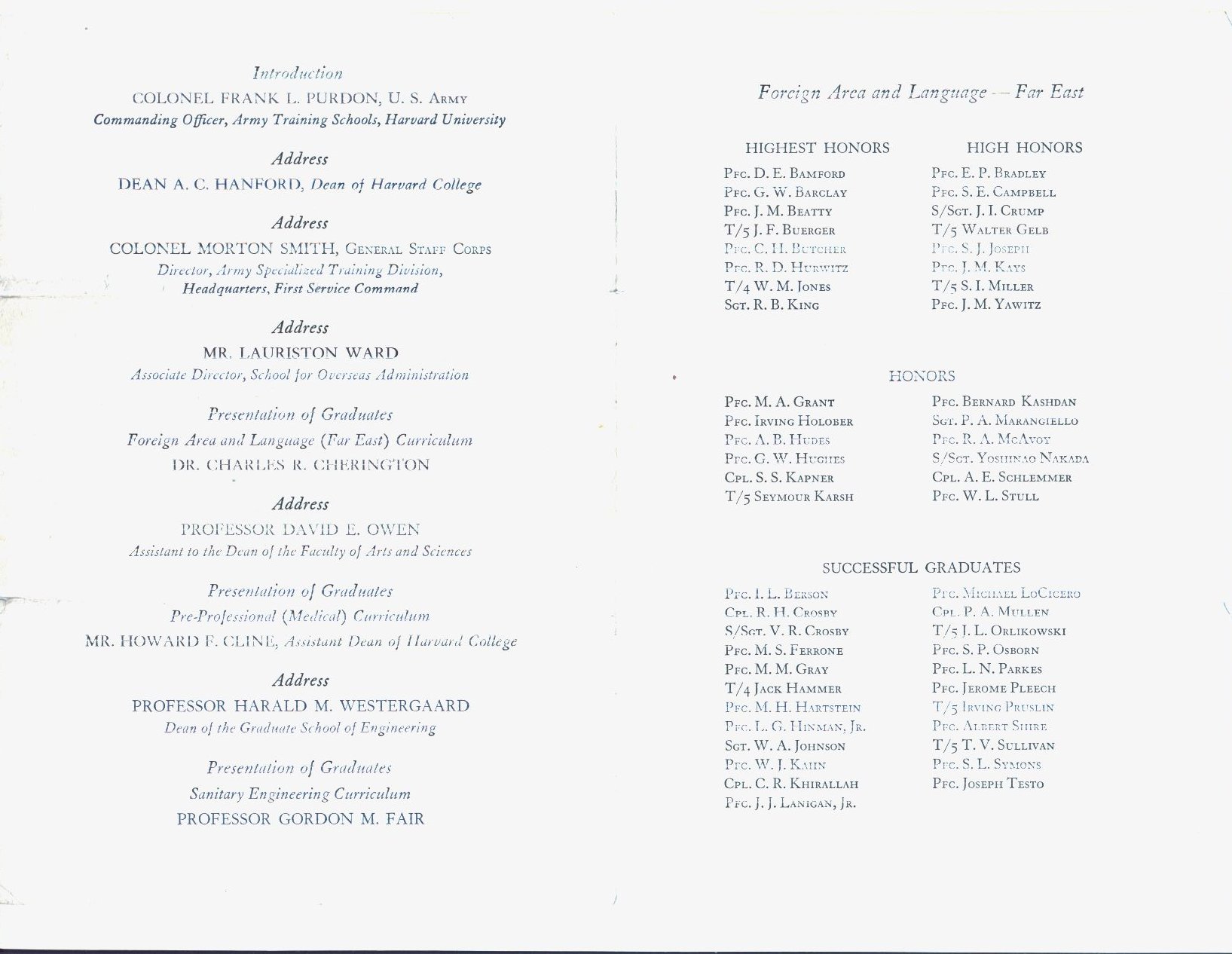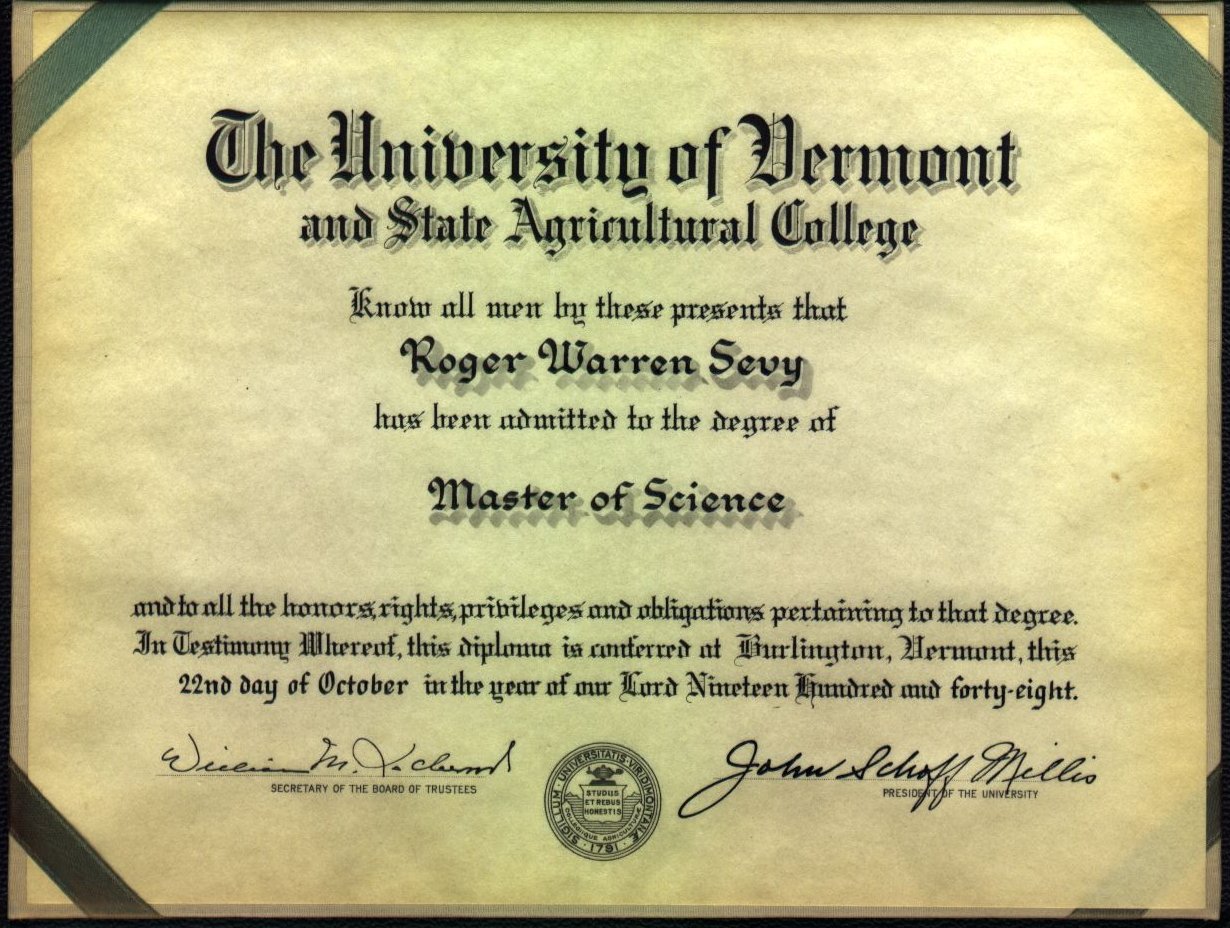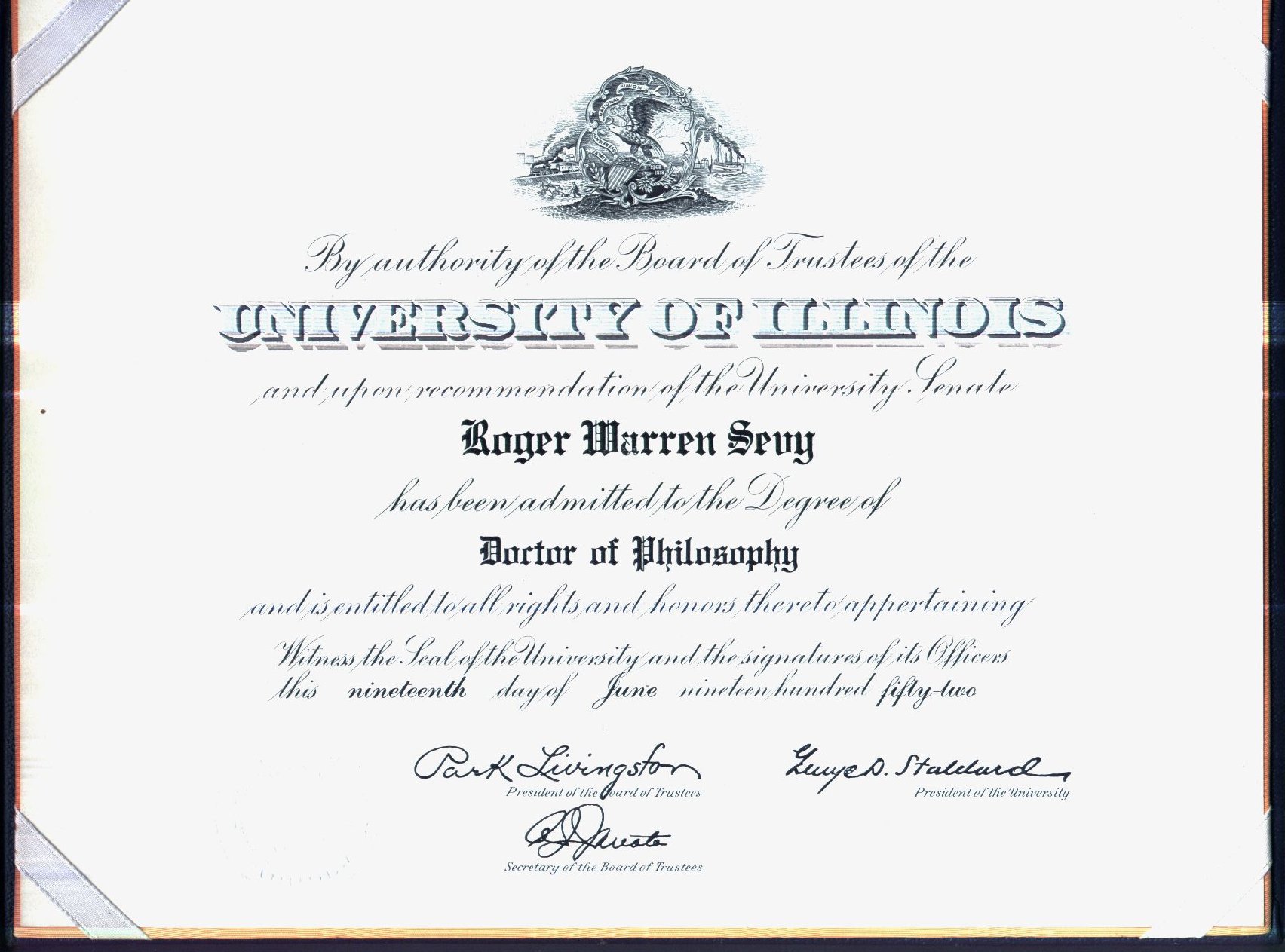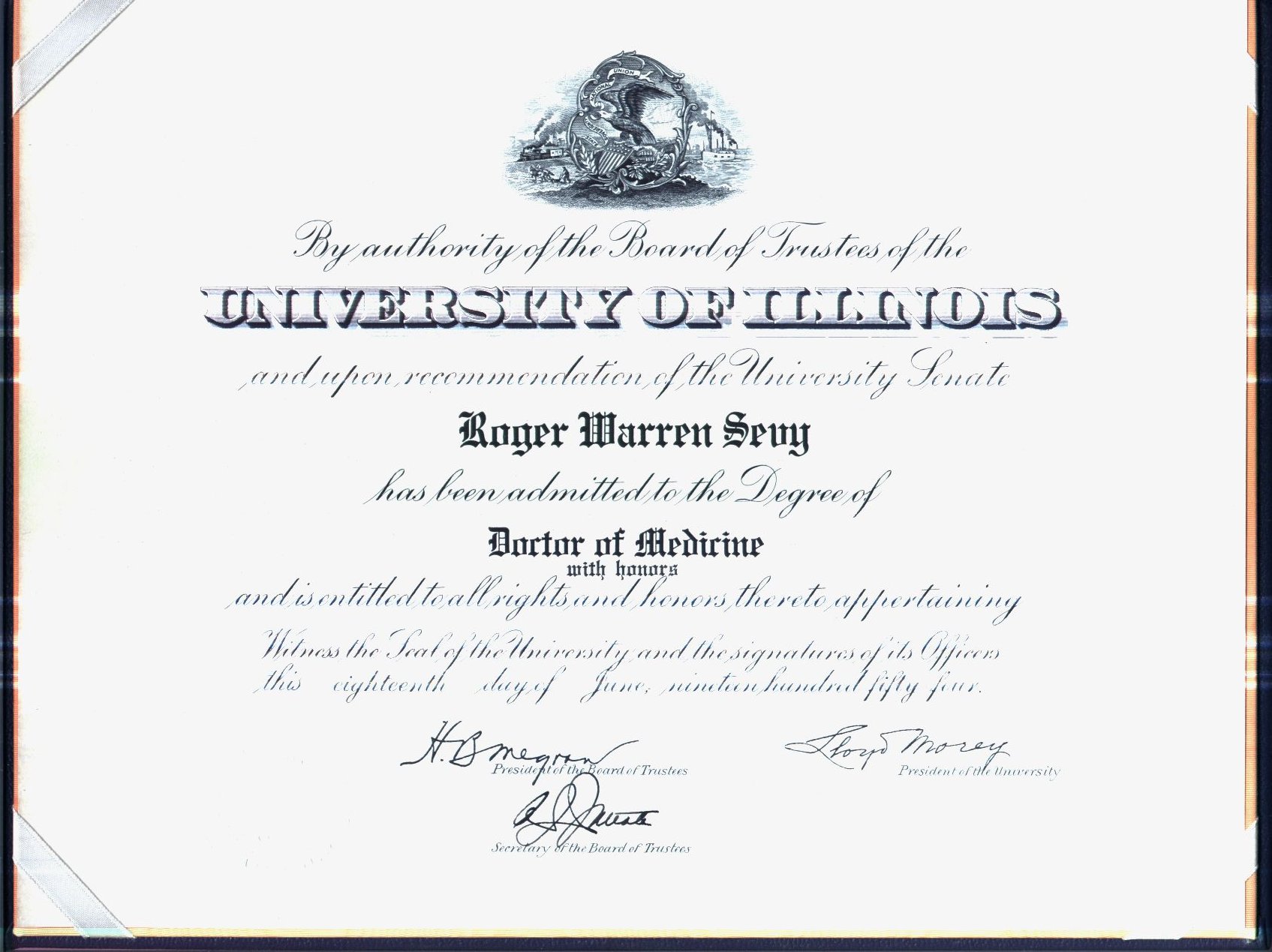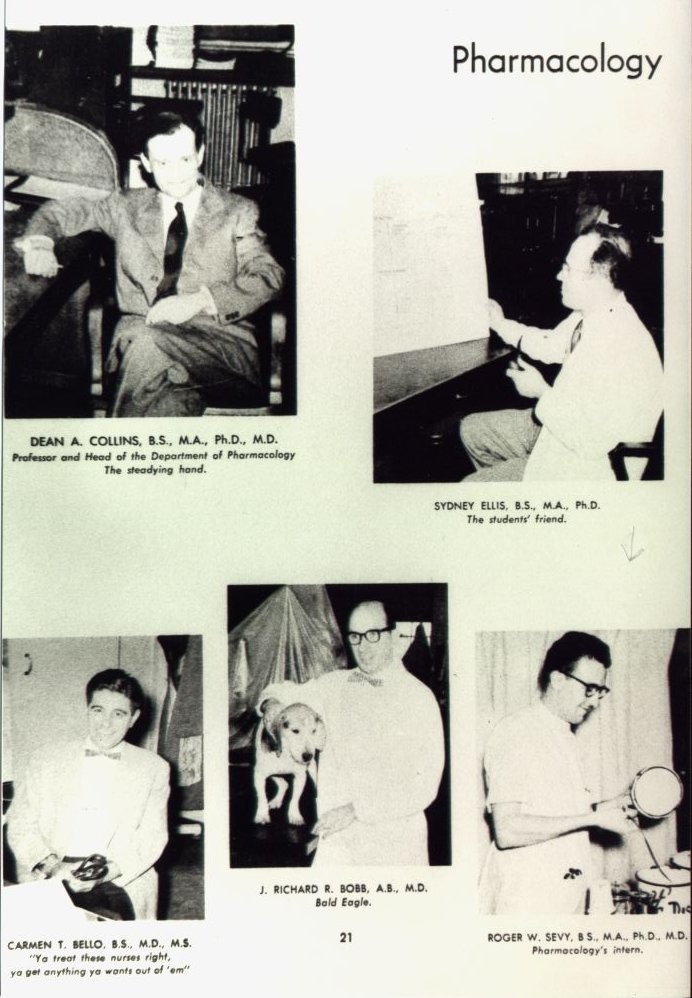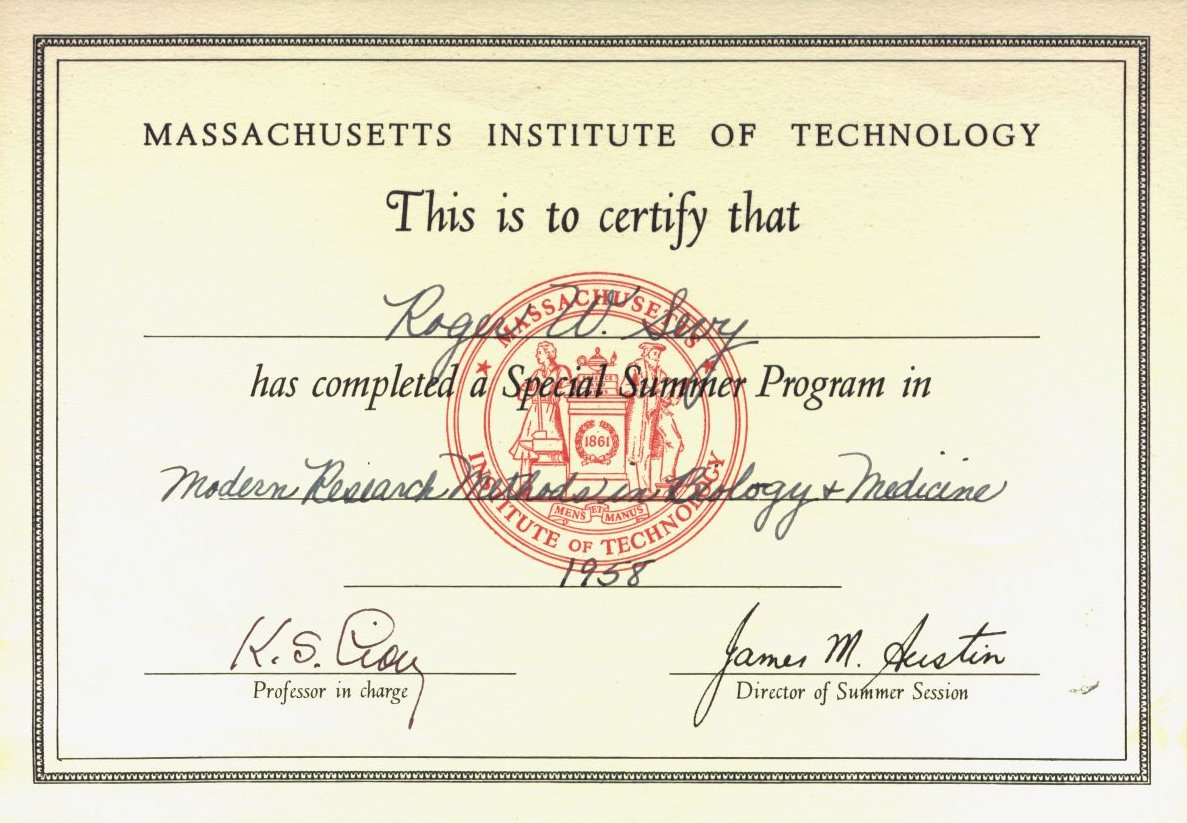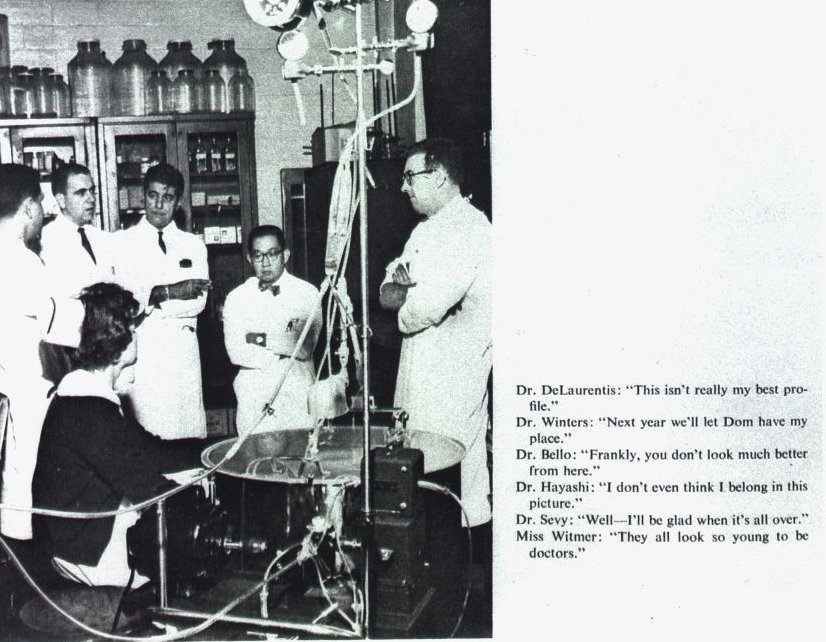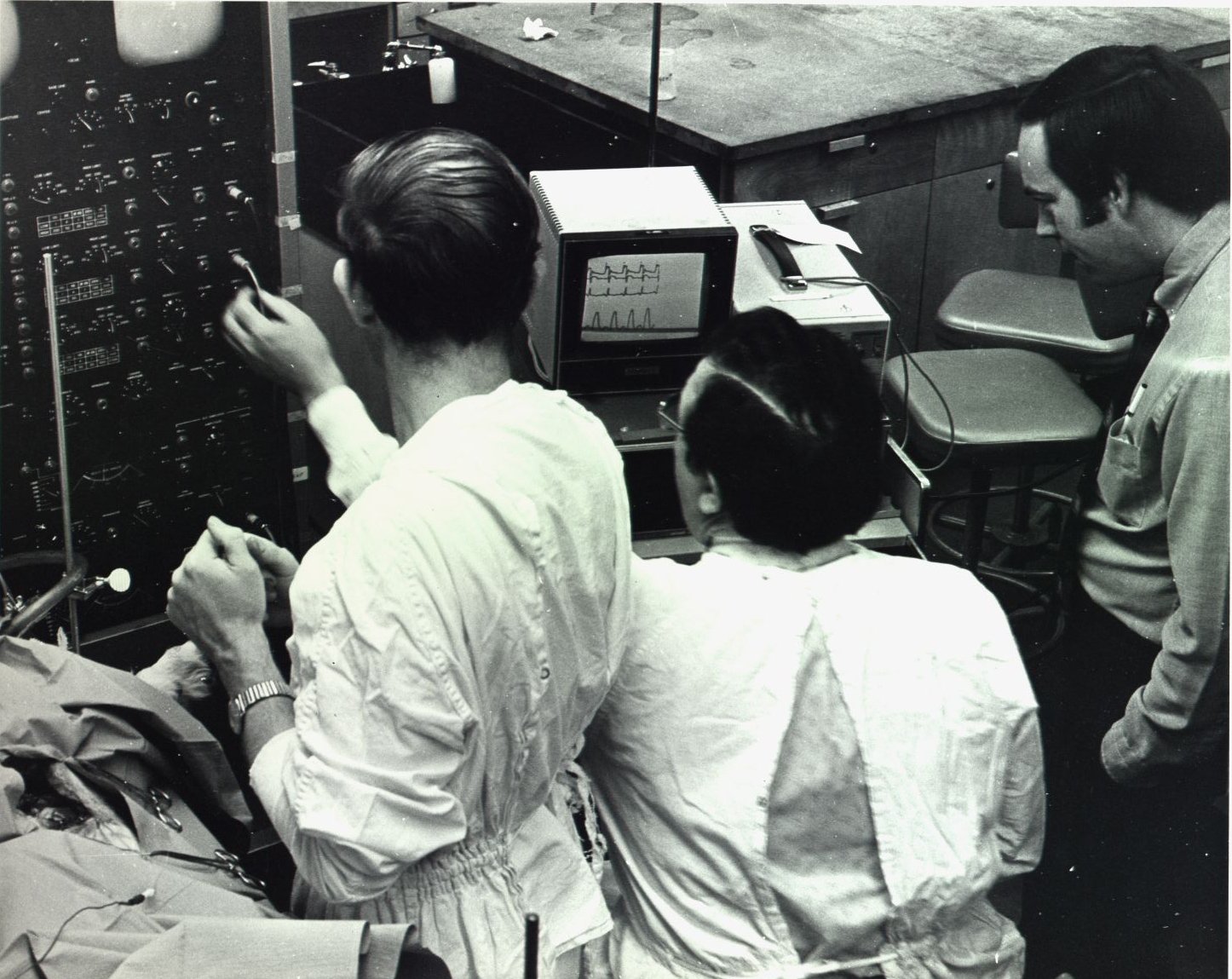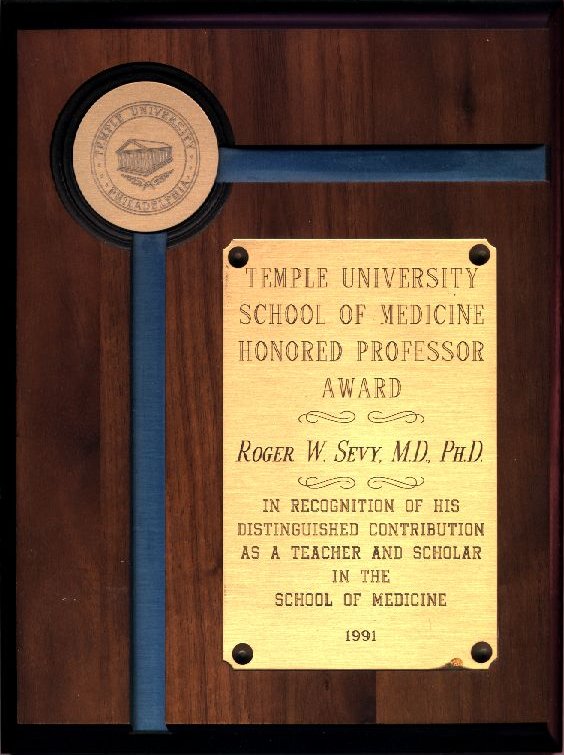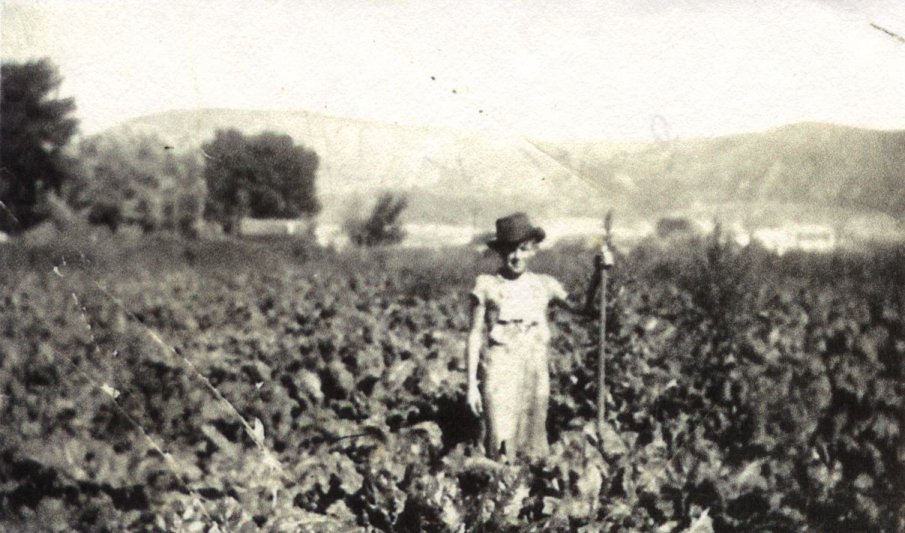
A memoir by Roger Warren Sevy, PhD, MD

Roger in a beet field in Sigurd, Utah, in the early 1930's
In memory of my uncle Berkley Anderson, whose encouragement and generous financial assistance were deciding factors in my decision to interrupt medical school to pursue a year of research and the degrees Master of Science and Doctor of Philosophy.
This story is the result of numerous requests from children, siblings, and nieces and nephews to write down my often-told stories about my educational experiences leading to my career as a medical school professor.
So here it is !
I was born in Richfield, Utah in 1923, and grew up in the small Mormon town of Sigurd - population about 400 - to the age of 19 yrs., when I left to join the Army Air Corps in World War II. Sigurd is about 8 miles north of Richfield - population about 5000 - which is the county seat for Sevier County, Utah.
Grades 1 through 6 - there was no kindergarten - were completed in the four-room school house in Sigurd. There was one full-time teacher in each room for two grades each: first and second; third and fourth; and fifth and sixth. The principal, who taught fifth and sixth grades, was, I believe, a college graduate, but the other three teachers were relatively young and each had graduated from what were then called “two year teacher’s colleges”; the third and fourth grade teacher was one of my aunts (May Malmquist). The subjects taught were almost exclusively reading, writing and arithmetic, with plenty of each. Grammar and spelling were emphasized in the first two, and the third emphasized multiplication and long division - but I do not remember being taught to extract the square root of a large number!
Junior high (seventh and eighth grades) and high school were taught in Richfield in separate, but very adequate, facilities. For these grades the students from Sigurd had to be bussed. The curriculum seemed pretty standard, with emphasis on English, American history, mathematics (algebra and geometry), chemistry, physics, and civics. These were supplemented by several other elective activities such as commercial courses, dramatics and music. My own evaluation of the required courses was as follows: English, taught by miss Miller, was excellent, with insistence on good grammar, and featured much reading with a variety of assigned books and drama and then written reports about what we had read; mathematics was inadequate and taught by the coach; chemistry and physics were quite simplistic and unchallenging; and history was very interesting to me but poorly taught. However, the knowledge I obtained was sufficient for me to perform very well in my future education. There were, however, two additional experiences I had in high school which were more important in shaping my future. Both involved competing for leadership positions and entering sponsored speech contests. The first was as president and member of the Richfield High School chapter of the Future Farmers of America (FFA). This organization was established on a national basis by The Smith-Hughes National Vocational Education Act of 1917, and the resulting national organization had as its creed: “Learning to do, Doing to learn, Earning to live, Living to serve”. Our faculty supervisor was Mr. Don E. Kenney, and he taught us so many lessons about how to confront the problems of life as it is and about taking responsibility for leadership and getting things done. His approach to teaching was Socratic, with many, many questions, some of which required a great deal of reading and study for us to answer to his satisfaction. And he refused to accept excuses! I continue to fondly remember him telling us time and time again the saying, “I didn’t think, or I forgot, the poorest excuse of all the lot”. FFA programs were local, regional, state and national. One such program was a competitive speech program about the importance of agriculture. In my senior year I won the local (school) contest, then the regional (county), and finally the state (Utah) contest. The title of my speech was “Agriculture’s Role In A Planned American Democracy”. However, at the next level of the contest, which was the eleven western states, I was judged to place only second, losing out to the candidate from Colorado. An important judge in the latter contest was the current head of the Federal Bank in San Francisco. There was some feeling among my supporters that my use of the communistic phrase, “Planned American Democracy”, in the title of my speech had not gone over very well with someone probably very devoted to capitalism! Whatever the reason, I was not destined to go on to the final national contest to be held a few months later in Kansas City. Nevertheless, the whole experience gave a giant boost to my ego and my academic reputation. In addition, the considerable amount of study and research that went into the development of the content of my speech was, in large part, responsible for my subsequent interest in the field of economics. This was because my speech had dealt heavily with the economic issues facing agriculture. I believe another benefit from my success in the speech contest was that Mr. Kenney recommended that I be a candidate for a Sears & Roebuck scholarship to Utah State Agricultural College, which I was awarded and which paid for my tuition and books in my freshman year of college
The second experience I had in high school which I consider to have been very important to my development was participation in two programs sponsored by the Utah American Legion. The first was a school speech contest about the lessons of World War I. I placed second, but cannot remember a specific title, only some highlights among the contents: “The war to end all wars” had not lived up to its promise, since World War II was already confronting us; “ Food will win the war!” and “ Plow to the fence for national defense!” were slogans which stimulated marginal agricultural production that had probably contributed to the dust bowl of the 1930s. The other American Legion sponsored program of importance to me was “Utah Boys' State” in which high schools were invited to select students to attend a summer encampment where they would organize and establish their own government similar in structure and function to the Utah state government, with declaration of candidacy, campaigns and elections. I was one of the delegates from our school, and was successful in being elected to the position of Justice of the Supreme court. My cousin, Jim Sevy, was elected Governor.
I began college at Utah State Agricultural College (USAC,now Utah State University) with the financial assistance of the aforementioned Sears & Roebuck scholarship, which paid for my tuition and books, but not for living expenses. I was able to find room and board for $22 per month, so my need for earnings was not very large. A job in the library, stacking books, plus a job in a service station on weekends, when added to my small savings from my FFA projects in high school (growing sugar beets), was enough to pay for board and room. Then, in my second year, I had the top grade-point average among the 24 Sears-Roebuck scholars, so I won a second year of scholarship! I decided to major in Agricultural Economics, and was confident I would somehow be able to graduate.
By then, however, we were a year into World War II, and many of my classmates and I were feeling guilty about not serving our country in the military. We were reminded of this on a daily basis by the presence on campus of a college training detachment of Army Air Corps cadets. From them we learned that they were in the first stage of training to become either pilots, bombardiers or navigators. As a result, some of my classmates and I went down from USAC at Logan to Salt Lake City and applied for entrance into the cadet program of the Army Air Corps. We took all of the exams and then went home to await the results. Only two of our group were not accepted. The rest of us were instructed to meet a train in Salt Lake City which would deliver us to Wichita Falls, Texas where we would begin basic training at Sheppard Field. I said goodbye to my mom and dad at the Trailways bus stop in Sigurd and headed for Salt Lake City and Sheppard Field and beyond. Little did I know what a tortuous path I was embarked upon, nor that the Army was to take direction of much of the rest of my education!
We were three weeks into basic training when I developed a strep sore throat and was hospitalized in the field hospital. I was one of the fortunate ones to escape the complications of rheumatic fever, kidney disease or heart disease, and was discharged back to active duty after several weeks. By that time my old outfit, all cadets and college students like myself, had finished basic training, so I was put in with a new group which seemed to include mostly Oklahomans who had been drafted, and who didn't particularly like college students or cadets. So, I took a few punches now and then and a few gang-ups on the pea patch, where we had physical contact drills, but I survived. My best friend in that outfit was a little guy from Tulsa who was hoping to become a cook.
Finally, I finished basic training and was assigned to another cadet group for CTD (College Training Detachment) training at Butler University in Indianapolis in the summer of '43. Three months of CTD consisted of a lot of heavy courses (math, physics, meteorology, navigation), physical training, and ten hours flying time in a Piper Cub. All of the many exams were graded on a percentile scale based on speed and accuracy. The first one through with all correct answers got an average of 100; the last one through got 0 for speed plus whatever he earned for accuracy - for a total of 50 max. They weeded them out from the bottom up and sent the losers on to other duties.
After CTD we were sent to Randolph Field, San Antonio, Texas, for preflight training and classification – to determine whether we were best suited to be pilots, navigators or bombardiers. Needless to say there were reams of tests, especially physical and psychological. I had no trouble until the final round of physical exams - and then I flunked, for the first time since enlisting. I couldn't get my heart rate down within the required limits after exercise (known as the Snyder test). It had been borderline before but they had passed me anyway. The Air Corps had certainly wasted a lot of time on me up to that point. But at Randoph Field the medics were very strict and finally failed me after numerous tests. I was washed out of the cadet program! No more hopes of being a hot fighter pilot. I felt completely crushed and useless. I felt like I didn't care about anything anymore.
I soon found that I had plenty of company. I was assigned to a company of 700 "Cadet Eliminees" whose future was to be redirected. At first I was put through a battery of additional exams to determine my aptitude for whatever might come. One of the exams was the Army General Aptitude Test, which I had never taken because I had qualified for the cadet program instead. Soon after, our company of cadet eliminees was sent to Amarillo Air Base for disposition. It was November and we found that Amarillo was not particularly pleasant. It was a place where you could stand in mud up to your ass and have dust blowing in your eyes. There was nothing between there and Canada to block the cold north wind. Plus, we were a very discouraged, demoralized, unruly bunch of guys. Our dreams of becoming hot fighter pilots, flawless navigators or deadeye bombardiers had been shattered. We were really pissed off!
We were just waiting there idly to be assigned to other duties. Other than having us stand in lines at appointed hours, the officers in charge really didn't know what to do with us. There were seven hundred of us and relatively few moved through the lines each day. What to do with those of us waiting to take a place in line to be reassigned was a challenge. One sergeant decided we should repeat basic training! You can imagine how thrilled we were with that horseshit! Well, on the first march to the pea patch, he halted the company near a long hedge of tall tamarisk bushes. And before he ordered "forward march" again, all of the remaining hundreds of us disappeared through those bushes. We kept meeting each other at different base PXs during the day. By nightfall all of us had found our way back to our own barracks and collapsed into the sack. The sergeant was furious, as well as embarrassed, and swore revenge.
The next morning we got up to find ourselves surrounded by helmeted armed guards marching around our compound. Even our mess hall was off limits to us! It didn't take long for us to discover that the armed guards were new recruits, even less familiar with military procedure than we were. Oh, they went through the procedures okay: "Halt! Stop or I'll shoot!". But in less than two hours they were marching around empty barracks, and we were once again greeting each other over coffee and doughnuts in the base PXs.
It was obvious that a company of demoralized cadet eliminees didn't give a damn what happened next. At that moment a wise old first sergeant returned from leave and took charge. He told us he would post our schedules on the bulletin board in the center yard, with three days notice, for reassignment and shipping out. If our name was not listed we could get a three day pass and go into Amarillo (what a thrill that was). But if we missed a schedule, he promised us we'd burn in hell. After that, things worked pretty well, and all of us got reassigned. Most of us, those who had passed the flight physicals, were sent to gunnery schools, with their strong images of B-17 tail gunners being washed out with a hose after a combat mission! Others like me were sent to other air corps schools such as armor, mechanics, radio, and weather. I had my choice of meteorology or radio school, and I picked radio school and was sent to Truax Field in Madison, Wisconsin, in the dead of winter.
I was really enjoying radio school, but after about two weeks they had a fire in our classroom building and had to cancel classes for a few days. So, as luck would have it, the C.O. gave us a three day pass to go into Madison. With the University of Wisconsin right there full of coeds and all the guys conscripted, we didn't mind at all. We had a ball!
Then, when we returned to barracks very late on the last night of our pass, another one of those unexpected things happened to me. Our sergeant was stomping through our barracks calling my name. When I answered, he bellowed "Sevy, where the hell have you been?" When I explained I'd just returned from a three day pass, he shouted, "Well, pack your bag! You're shipping out at four A.M.". When I asked where to, he yelled, "How the hell do I know? Nobody tells me what's going on in this fucking outfit!".
As it turned out my destination was the University of Illinois in Champaign-Urbana, Illinois. On arrival, I was told I had been sent there based on my scores in the exams I had taken at Randolph Field after being washed out of the cadet program. I was now to be assigned to an Army Specialized Training Program (ASTP). I was at the University of Illinois for about ten days, during which time I took more examinations in math and sciences than I had ever taken before. Finally I was told I was being sent to Harvard University to be enrolled in the course in Basic Engineering. Rumor had it that the Army projected a need for many more engineers. This was now in December of 1943. Here I was at Harvard, after having been first an Army Air Corps cadet, then a "Cadet Eliminee", then a student in Radio School, and now a student in Basic Engineering in a program called ASTP, and all within less than a year's time. And you think the Army knows what it's doing?
I don't recall the total number of basic engineers in the ASTP program at Harvard, but when assembled all together we certainly filled the largest auditorium. However, we were divided into small groups (platoons) for classes. And the classes were terrific! We had mainly full-time professors, because most of the teaching assistants were also in the military. We were lodged in the “houses” along the Charles river, and each house had its own excellent library. I was in a suite with seven classmates sharing four bedrooms and a large central study. We each had our own desk and bookcase. Our class included students from all across the country, from Massachusetts to Washington. What a learning environment that was! But things can change very suddenly in the army, and so it was with the course in Basic Engineering.
Many things happened during the first term, usually without adequate explanation. We asked plenty of questions about what our future held, and often got two different answers, one from the Army and one from the university. At one large muster we asked our C.O. which we should believe, and he answered,"Well the Army is only a little over 150 years old, and Harvard is over 300 years old. Figure it out for yourselves!" And in general we could rely more on the word from Harvard, though even it seemed to be in the dark some of the time.
One day we were marched into a large auditorium and told we were to take a special exam. Why? No one seemed to know. And the exam really was a weirdo. I had never taken one like it before. Later, I was to learn that it was very similar to an MCAT exam - a Medical College Aptitude Test. Some of my buddies had been pre-med students before the war, and they explained it to me. They were hoping that the exam might mean that some of them would be transferred from engineering to medicine. But we continued on as usual in our basic engineering courses and that unexplained exam was seen as just another meaningless episode. But then one day about sixty of us saw our names posted on the bulletin board in the Company Clerk's Office. We were each scheduled to be interviewed by three medical school deans, from Dartmouth, Boston University and Tufts.
On the date I was scheduled for interview, a group of us were waiting in a lobby in Dunster House to be called into the library for our interview. Some of my classmates who had been pre-med students were advising others to have good reasons for wanting to be a doctor - such as wanting to save mankind from all sorts of devastating diseases! Since I wanted to be an agricultural economist, I closed my ears to their advice. My interview started out with this statement from the Dartmouth Dean, who was quite imposing, with a small mustache and beady eyes: " I see in your record that you've had some flying time. I suppose you want to be one of those flying doctors like they have in the midwest!" I felt a little offended by the tone of his statement as I replied, "No, in fact I have no desire to be a doctor of any kind." I don't remember most of the interview after that except that my reply seemed to startle them, and the same Dean who assumed I wanted to be a flying doctor kept prying into my past to determine why I had passed the medical aptitude exam. What finally seemed to satisfy him was my telling them of my experience at the Poisonous Plant Laboratory run by the U.S. Bureau of Animal Industry in Salina canyon near Sigurd. I had gotten a summer job there while I was a student at Utah State Agricultural College, and our main experiment that summer was on the effects of ergot poisoning in cattle. The Dartmouth Dean then asked me lots of questions about the effects of ergot.
Not long after these interviews, we were finishing final exams for our first term of basic engineering when our C.O. called us to a meeting in the courtyard for an important announcement. The announcement was a shocker! The Basic Engineering Program was being closed, and we were all to be reassigned to the Infantry at Fort Bragg, NC. We were all getting a three day pass just before shipping out. Well, at least the reason for this change seemed clear enough. With the scale of fighting in both European and Pacific theaters, there was surely a need for more infantry.
My seven buddies and I in the same suite at Harvard decided we'd have one hell of a good time in Boston before shipping out to Fort Bragg. And that we did, returning to our suite late at night to pack our barracks bags before shipping out early the next morning.
And then still another unexpected thing happened to me. Just after stuffing my last shirt into my barracks bag, our Company Clerk came running into our suite and yelled: "Sevy, unpack. You're not leaving." Nineteen names, including mine, were posted on the bulletin board notifying us that we were staying at Harvard to form a "pre-professional" - pre-med - class, to be joined by a similar number transferred from other schools. Two of us did not like this turn of events, and we went to our C.O. to request that we be allowed to ship out with our classmates to Fort Bragg. But he said it was out of his hands and up to Harvard, and specifically to Dean Cline, to whom we were now answerable. So, the next day ,a few hours after our buddies had shipped out, we were able to see Dean Cline about our request. The other fellow was older than I and had been a journalist for a Boston paper and was positive he would return to that job if he came out of the war alive. The dean released him from the program; but since I had not yet established a career, he made me promise to stay in the program for one term; if I didn't like the subject or didn't do well academically, he would then release me. So I stayed in the program. And I loved the courses.
I graduated from the pre-med course at Harvard with highest honors and was assigned to work as a medical corpman at Walthham Regional Hospital for several months, following which I was to join the next incoming freshman class in medicine at the University of Vermont. After completing the first year of medical school, I was finally discharged from the Army in April 1946, three years and four months after enlisting. I was finally free from Army orders and could direct my own future. By then, however, I felt certain I would base my career in medicine.
With the end of the war, the medical schools, which had been on accelerated schedules during the war, went back to their regular schedules, which meant that we had an extra long summer vacation at the end of our first year. To fill in part of this time one of my classmates and I approached one of our professors (Dr. Fred Dunihue) about finishing a research project we had started during our freshman year. He agreed to have us in his lab, and this summer experience caused me to develop a considerable interest in research, which was further stimulated by two visiting research professors at the University of Vermont. One was Dr. Albert Sabin, from the University of Cincinnati, the discoverer of the first orally effective polio vaccine. Dr. Dunihue introduced me to Dr. Sabin and told him I was doing research. Dr. Sabin said he was always pleased to learn of a medical student being interested in research and encouraged me to keep going in that direction! So, later on when Dr. Dunihue pointed out to me that there was an announcement by The Life Insurance Medical Research Fund Foundation that they had scholarships available for qualified medical students to take a year out of medical school to do research, I was immediately interested and wanted to apply. There was one problem with doing that, however: the scholarship would pay for my tuition and research expenses, but was not enough to pay my living expenses. My parents were in favor of me taking the year out for research, but were not financially able to pay my living expenses. My mother mentioned this to an uncle (Berkley Anderson), who was very supportive of my educational program and agreed to loan me $200 per month for living expenses. So, I applied for the scholarship, received it, and began my year of research. My research involved a study of a particular class of chemical compounds produced by the kidney in different types of experimental hypertension in animals. The University of Vermont agreed to grant me the degree Master of Science if I wrote up my research as a thesis and defended it before my professors, which I completed in1948. The title of my thesis was “Renal Plasmologen in Various Experimental States”. As a result of my research, I was elected into SIgma Xi, the Scientific Research Society. I was also offered two additional experiences which greatly affected my career path, and both were assisted by recommendations from Dr. Dunihue. The first was an invitation to visit Dr. Hans Selye’s lab in the Institute of Endocrinology at the University of Montreal to present my research results to his research team which had long been interested in the problem of renal hypertension. Dr. Selye was a world renowned expert on “Stress” and the “Adaptation Syndrome” and their probable role in many diseases, including hypertension. I visited his lab during Lent, and with the University of Montreal being French, about the only thing readily available to eat in the cafeteria was fish, which I soon had my fill of!
The second opportunity resulting from my research was an offer from Dr. George Wakerlin at the University of Illinois in Chicago for a teaching assistantship in the Department of Physiology during which I could be enrolled as a PhD student in the Graduate School. Dr. Wakerlin was the leader of a large research team interested primarily in the problem of hypertension. Dr.Wakerlin had also assured me that, if I did well in graduate school, he was confident that I would be able to complete my last two years of medical school at the University of Illinois. Before accepting his offer, however, another very important change occurred in my life - I got married!
I had met Barbara Snetsinger on a blind date in 1947 when she was a senior in college and I was finishing my second year as a medical student. I proposed to her in November 1947, and we were married in August 1948 and moved to Chicago together. We quickly found a small efficiency apartment we could afford. Babara had taught high school French and English for the past year in Ludlow, Vermont and decided to see if she was qualified to teach these same subjects in the Chicago school system. She went to the Department of Education for an interview where she was told she would need to take a course in Illinois state history to qualify for an Illinois state Teacher’s certificate, even though she had majored in French and English for the BA degree from the University of Vermont. So, she settled instead for a job in the Medical School library. With her salary and my teaching stipend we were in reasonably good shape financially, and were even able to pay off my loan from my Uncle Berkley Anderson, who refused to take any interest on the loan. We were thus settled in Chicago for a six year period, one of the happiest periods of our lives. I was very pleased with Graduate School and Barbara loved her various jobs - after Medical School Assistant Librarian, she became: the Librarian for the Commission On The Financing Of Hospital Care; an assistant in a large book store; and finally the chief assistant to Charles Felstein, a leading public relations firm in Chicago. In the last position one of her major projects was to write the public relations brochure for the Lobund Foundation.
I learned that the requirements for the PhD degree in Physiology at the University of Illinois were numerous and considerably difficult to complete: 1) the most important, of course, was research leading to a thesis successfully defended before a committee of full professors; 2) completion of the courses in Physiology and a selected minor subject, which for me was Pathology; 3) an oral “preliminary examination” by the professors in all five of the basic medical sciences (Anatomy, Biochemistry,Physiology, Microbiology, Pathology), which was rumored to be the toughest of all exams; 4) a reading knowledge of two foreign languages (French and German), as determined by examinations from language professors.
During my first semester, I spent most of my free time (free from teaching) deciding on the research I would do for my thesis. I finally decided to research the role of the endocrine system in the development and maintenance of experimental renal hypertension in dogs. My choice was heavily influenced by the fact that the main research in the department, under Dr. Wakerlin, was concerned with the physiologic changes underlying the cause of experimental renal hypertension, with the hope of uncovering the cause of hypertension in humans. My proposal to study the role of the endocrine system in experimental hypertension met with Dr. Wakerlin’s enthusiastic approval, and I began planning my experiments.
The teaching duties required by my teaching assistantship consisted mainly of supervising the laboratory portion of the main physiology course for first year medical and dental students. After my first year I was assigned a few of the basic lectures for medical students. In my final year I was put in charge of the physiology course for pharmacy students. These teaching experiences were enormously helpful in my subsequent academic career.
To pass my French examination (reading a scientific article written in French), Barbara taught me, and about six or seven other graduate students, enough French to do so. She accomplished this through weekly one-hour teaching sessions per week over about three months. Many of her former students owe their degrees in no small part to her efforts. I also passed my required courses, my oral preliminary examination (with congratulations from my team of examining professors!) and, finally, the defense of my thesis.
I was awarded the degree Doctor of Philosophy (PhD) by the University of Illinois on June 19, 1952, and was immediately accepted into the School of Medicine, also at the University of Illinois, to finish my third and fourth years of medical school.
Over the next two years I successfully completed all the clinical courses required for the medical degree (internal medicine, surgery, obstetrics, gynecology, pediatrics and the various subspecialties: cardiology, neurosurgery, etc.). My grade averages were high enough to win me membership in Alpha Omega Alpha, the Medical Honor Society. I received the degree Doctor of Medicine with honors from the University of Illinois on June 18, 1954.
The next important step to plan for was an Internship. By this time, I knew that I wanted my career to be in basic medical science (teaching and research), rather than clinical practice, but even so I still wanted to complete a well rounded internship in all the various areas of clinical medicine. In the 1950s the best known places (hospitals) for rotating internships covering all the major specialties in medicine were the major county and city charity hospitals such as Cook County Hospital in Chicago, Charity Hospital in New Orleans, Los Angeles County Hospital, and Philadelphia General Hospital. As it turned out I decided to do my internship in Philadelphia, but at Temple University Hospital rather than Philadelphia General for several reasons. A couple of friends from Temple University Medical School, whom I had met at meetings of the American Physiological Society, in which I had been elected a member based on my work for the PhD degree, recommended me for a position on the Temple medical faculty to fill a much needed position in their department of Pharmacology. They also knew of my desire to complete an internship, and thought I might be able to do this at Temple during while working an Instructorship over a two year period. As it turned out, they were right. Finally, the Dean of the medical school was also effectively in charge of the hospital, which did have a very good rotating internship program. The Dean explained that since the teaching program was completed in only one semester, I could alternate semesters teaching and interning over a two year period. He presented this by phoning me in Chicago, and invited me to Philadelphia to be interviewed for the position, which was to include having me present a lecture that was really a research seminar to the basic science faculty. However, he called me a day later to tell me I would instead be scheduled to give a lecture to sophomore medical students. I was pretty sure from these discussions that he wanted to test my teaching ability before going forward with the appointment. So, before leaving for the interview in Philadelphia I spent a few hours late at night revising my research seminar, which was going to deal with my research on experimental hypertension, into a lecture on the pharmacological approach to clinical hypertension. And it all worked out very well indeed, if a bit surprisingly. My lecture for the students was held in a large lecture hall, and in the middle of my lecture I noticed a very well dressed gentleman in overcoat and Homberg hat (this was in November of 1954) come into the lecture hall and quietly walk to the back of the room and take a seat to hear the rest of my lecture. In a very short time after the lecture, I learned that he was the Dean and that he had invited me to have lunch with him in his apartment. During lunch he thanked me for giving the lecture to the students and then asked a few questions about my past education and experiences. He had been told that I was a Mormon raised in Utah, and said he was proud to be a good friend of the current President of the Mormon church. I quickly explained that I was no longer active in that church, and was glad he did not pursue the question further. At the end of the lunch he said he would be pleased to have me join the Temple faculty, and would write to me with a formal offer with its specific terms and conditions, if that would be OK with me. I said that would be fine, and he drove me back to Temple to meet up with my friends.
The Dean sent me a letter a few days later confirming the offer specifying that over each of the next two years, beginning July 2, 1955, I would serve as an Intern during the first semester and teach the medical students pharmacology during the second semester, and that I would receive a salary of $4000 the first year and $5000 the second year. In answer I telephoned him to say I could not afford to come for less than $5000 the first year. He immediately agreed to that and I accepted.
Over the next two years I completed a rotating Internship at Temple, which proved to be a very good one, and was very pleased when several of the clinical chiefs congratulated me for being an outstanding intern. I got to be known as “Pharmacology’s Intern”! I also found the teaching experience to be very satisfying and learned later that the Dean had gotten very good reports from medical students about my teaching. By the end of the first year I was promoted to Assistant Professor, although still under the same part-time arrangement. Then, much to my surprise, I was promoted to Full Professor, full time, at the end of the second year (1956). Not only had I completed my internship, and thus my formal education, but my career also seemed to be launched and underway! And then, even more surprisingly, the Dean announced to me and the other Pharmacology faculty at a breakfast meeting early in 1957 that the executive faculty (the Dean plus all major department heads) had, at their last meeting, approved my appointment as Chairman (head) of the Department of Pharmacology. I can’t remember who was more shocked, me or the other Pharmacology faculty! Here I was suddenly launched on a very unexpected, and some might say undeserved, academic career. But I was very happy about the appointment and pledged to myself to give it my very best shot. However I was not long into this career before I learned that my education did not end with my internship. There was still much to learn and many challenges ahead for a Professor and Department Chair at Temple Medical School.
One of my first “extra” lessons was the functions of hemodialysis and the workings of the artificial kidney. Because I was one of the few faculty doing research involving kidney function, the Dean, on recommendations from the Chairs of Surgery and Internal Medicine, assigned me as chairman of a committee charged with responsibility for putting the artificial kidney into operation as a service in the hospital. At first I was inclined to object on the basis that a Pharmacologist had no business being involved with such a clinical service - that is, until perusal of the literature taught me that the first clinical use of hemodialysis was described by Able and Roundtree from Johns Hopkins University in 1911 in the Journal of Pharmacology, that Roundtree was a Surgeon and that Able had long been hailed as the father of American Pharmacology! So, I kept my mouth shut, took charge of the Committee and successfully put an artificial kidney (the Kolff Twin Coil Kidney) into operation in Temple University Hospital.
Because of the rapid progress in the development of new scientific equipment and methods in research, the next additional education I felt in need of was in scientific instrumentation. Fortunately a summer course entitled “Modern Research Methods In Biology and Medicine” became available at the Massachusetts Institute of Technology in 1958. I, along with a colleague from the Department of Medical Physics, enrolled in and successfully completed the course. Finally, I also had to learn to write many applications for research grants. I was able to do this successfully and obtained grants from the National Institutes of Health, American Heart Association, and several other organizations. I also chaired groups applying for and receiving institution-wide grants for the Clinical Cardiovascular Research Center (later changed to the General Clinical Research Center) and a Graduate Research Training Program.
I suppose, somehow or other, all of the above led a Search Committee of the Temple University Medical School to recommend that I be appointed Dean of the Medical School. Yet another unexpected career change! I was appointed Dean in 1973, served for five and one half years, and then returned to being Professor of Pharmacology until my retirement in 1989.
A final word of advice: For students and/or faculty aspiring to be a department chair or dean, forget about it until you are satisfied with yourself as professor and/or researcher. The happiest positions that I held were “Graduate Student” and “Professor”, and I wish I had been both longer!
